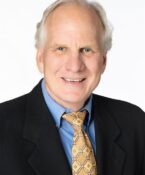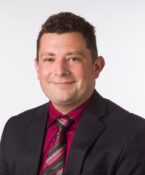Testosterone therapy affects Mexican American men differently
| Rebecca Cunningham, PhD |
Ads touting testosterone replacement therapy are ubiquitous on radio and television. But medical research has determined that its success at enhancing libido may come at a price.
Researchers at UNT Health Science Center now report that while testosterone replacement therapy can damage brain health in some Caucasian men, Mexican-Americans appear to be protected from the negative effects of the sex hormone.
In Caucasian men with elevated oxidative stress, testosterone replacement therapy raises the risk of damage to their brain cells, said Rebecca Cunningham, PhD, Assistant Professor of Pharmacology and Neuroscience at UNT Health Sciences Center. But that’s not the case for Mexican Americans, who do not appear to be affected by oxidative stress.
The findings, published in the April issue of the Journal of Alzheimer’s Disease, could lead to a better understanding of the role ethnicity plays in brain diseases and cognition.
"Different factors appear to drive dementia," Cunningham said. "And these factors are dependent on the ethnicity of the person."
Oxidative stress, which can determine whether testosterone protects brains cells or damages them, occurs when there are more free radicals produced in the body than antioxidants. Many studies have found between 20 percent and 30 percent of aging men have no response or a negative response to testosterone therapy.
"Our study shows that these negative effects occur only in Caucasian men with high oxidative stress," Dr. Cunningham said.
Testosterone therapy can improve libido, but it’s not beneficial across the board.
"I would tell Caucasian men to be cautious about taking testosterone, especially if their oxidative stress levels are high," Dr. Cunningham said.
A blood test for oxidative stress, such as homocysteine, can help physicians determine who is a good candidate for testosterone replacement therapy.
Mexican American men appear to be protected from the deleterious effects, possibly because of higher levels of endogenous antioxidants, which are produced inside the body and act as its own line of defense against free radicals.





Social media